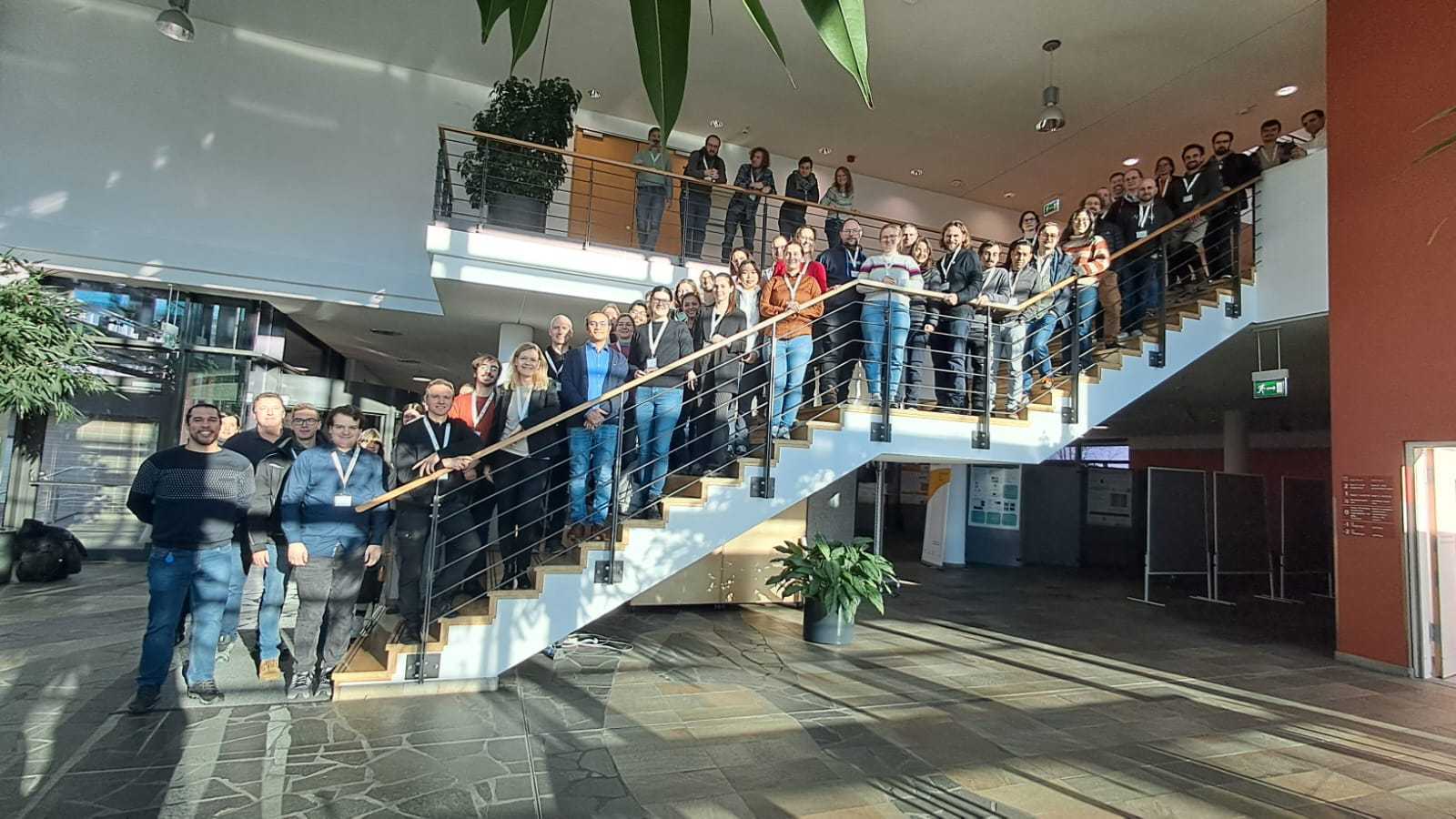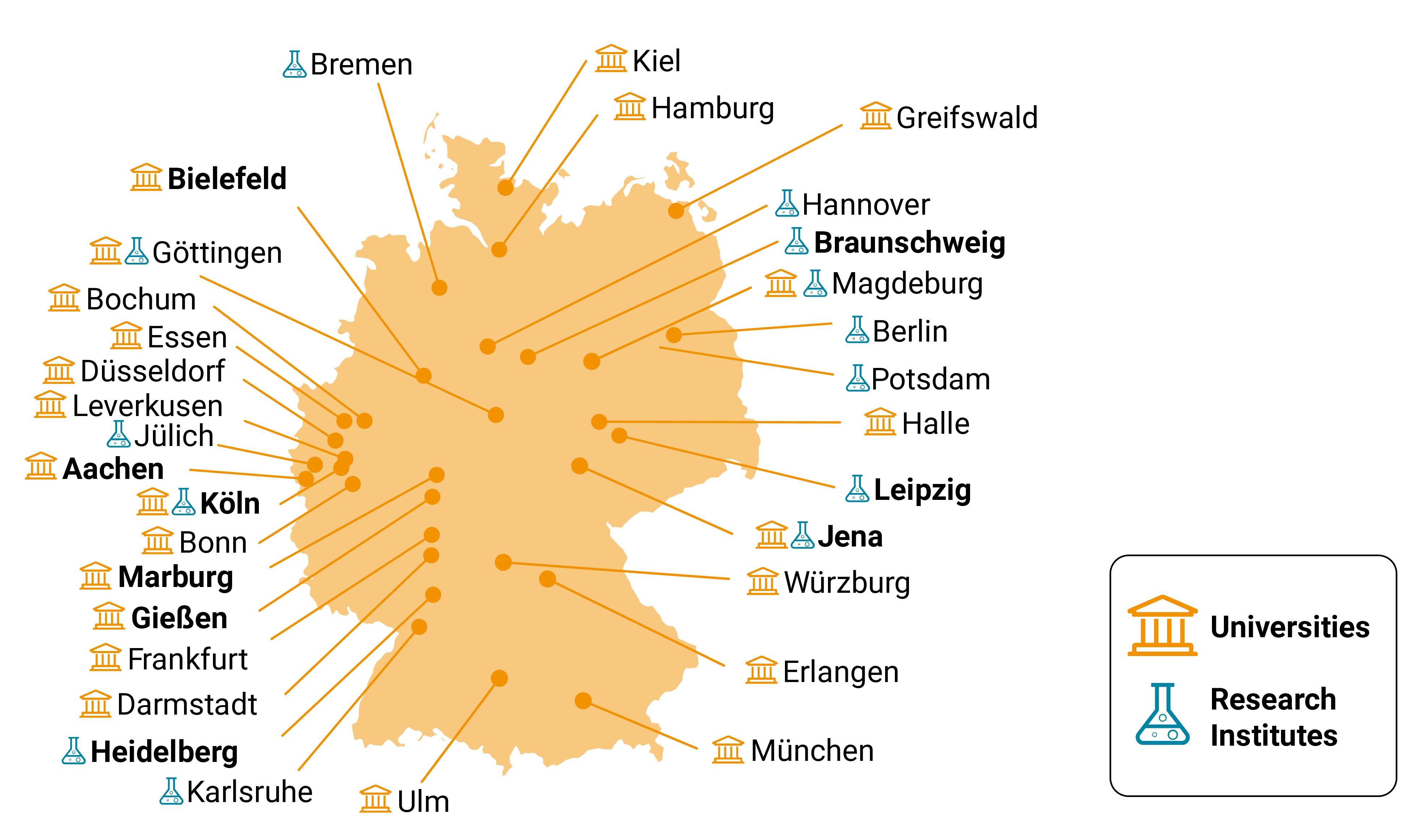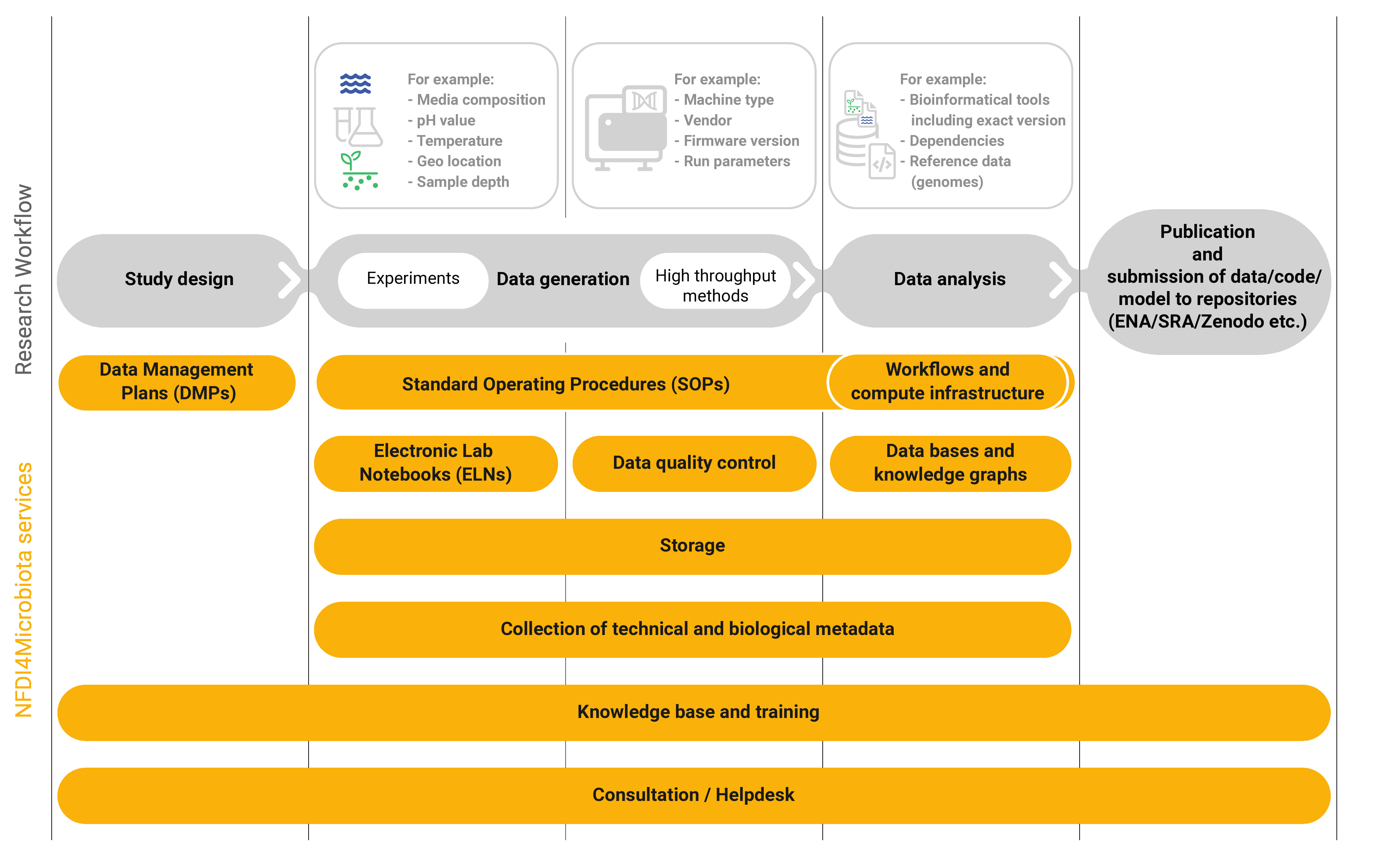About Us

Background
NFDI4Microbiota is a consortium within the German National Research Data Infrastructure (NFDI) that focuses on managing, standardizing, and sharing microbiological and microbiome-related research data. It aims to improve data accessibility, interoperability, and reproducibility for researchers working with microbiota across various domains, including health, agriculture, and the environment.
The vision of the NFDI4Microbiota consortium is that researchers in microbiology (including bacteriology, virology, protistology, mycology and parasitology) can translate research data easily into a deep understanding of microbial species and their interactions on a molecular level. To reach this our is to be the central hub in Germany for supporting the microbiology community with access to data, analysis services, data/metadata standards and training.
NFDI4Microbiota is a collaborative effort driven by 10 partner institutions and supported by over 50 participating organizations, including leading universities and non-university research institutions. Our partner institutions play a key role in shaping the consortium’s strategy, infrastructure, and services. They bring together expertise from microbiology, bioinformatics, data management, and infrastructure development to create a sustainable ecosystem for microbiome research data.
Beyond our core partners, we are strengthened by a diverse network of participating institutions, ranging from top-tier universities to renowned research centers. These institutions contribute through research, development, and community engagement, ensuring that our solutions meet the needs of the broader scientific community.
Together, we are building a robust and FAIR (Findable, Accessible, Interoperable, and Reusable) data infrastructure to advance microbiome research across disciplines following our motto:
Making Microbiology Data FAIR and Open.

Aims and objectives
NFDI4Microbiota’s overarching goal in the second funding phase remains the same as in the first one: to drive the digital transformation of microbiology research by removing friction and accelerating the discovery of significant new insights. Achieving this goal is far from trivial, as the microbiological community is highly heterogeneous in its aims, data types, and practices. Nevertheless, the potential benefits are substantial, as microbiology is deeply interconnected with various other disciplines. During the second funding phase NFDI4Microbiota will therefore pursue the following key objectives to improve the Research Data Management (RDM) ecosystem for microbiology and to make data, software, models, and other output FAIR, open, and AI-ready. We recognise that these are long-term goals that will not be fully achieved within this period.
- Key objective 1: Expand awareness of the importance of FAIR principles, open science, and reproducible research within the microbiology community and drive the cultural change required for their widespread adoption.
- Key objective 2: Equip the community with the skills and digital literacy (data, compute, AI, etc.) required for efficient, data-driven microbial research through a comprehensive training programme.
- Key objective 3: Improve the research process by mobilizing, structuring, and linking data, information, knowledge, software, workflows, and models related to microorganisms, using open, community-accepted standards.
- Key objective 4: Make research more reproducible by standardising data processing and analysis and by providing computational tools and databases to translate data into new knowledge.
- Key objective 5: Help to realise the One NFDI vision by building interconnected solutions that transcend disciplinary boundaries.
How we can help you doing better research

NFDI4Microbiota supports microbiology researchers at every step of their projects from the earliest study design through to data publication by providing best‐practice tools, infrastructure and expert guidance that make microbiology data FAIR (findable, accessible, interoperable, reusable) and reproducible:
1. Planning & Design
- Data Management Plans (DMPs): Templates and guidance help you articulate what data you will collect, how you will secure it, and how you will share it downstream.
2. Data Generation (Experiments & High-Throughput Methods)
- Standard Operating Procedures (SOPs): Community‐agreed protocols for sampling, library prep, extraction and sequencing ensure consistency across labs.
- Electronic Lab Notebooks (ELNs): A digital recording environment to capture detailed experimental metadata (e.g., media composition, pH, temperature, geolocation, sample depth) in real time.
- Storage & Metadata Collection: Secure, scalable object storage for raw data alongside guided templates to record both technical (machine type, vendor, firmware, run parameters) and biological metadata.
3. Data Analysis
- Workflows & Compute Infrastructure: Preconfigured, containerized pipelines—hosted in the cloud or on national bioinformatics platforms—let you process raw reads through taxonomic profiling, assembly, and functional annotation with full version control of tools, dependencies and reference genomes.
- Data Quality Control: Automated checks to flag contamination, low‐quality reads or inconsistent metadata before analysis.
- Databases & Knowledge Graphs: Integrated resources for strain information, viral genomes, functional annotations and microbe–environment associations, all cross-linked to help you explore and interpret results.
4. Knowledge Base & Training
- A continuously updated portal of tutorials, SOPs, best practices, use cases and recorded webinars that span bioinformatics, statistical analysis, metadata standards and workflow development—so both wet-lab biologists and computational scientists can quickly upskill.
5. Consultation & Helpdesk
- A dedicated support team—accessible via an online ticketing system or virtual coffee talks— advises you on study design, data management, SOP implementation, workflow customization, repository deposition (ENA/SRA/Zenodo) and any interoperability question.
By weaving together standardized protocols, robust metadata capture, reproducible analysis pipelines, training materials and hands-on support, NFDI4Microbiota empowers the microbiome community to generate high-quality data that can be shared, compared and built upon across disciplines and over time.